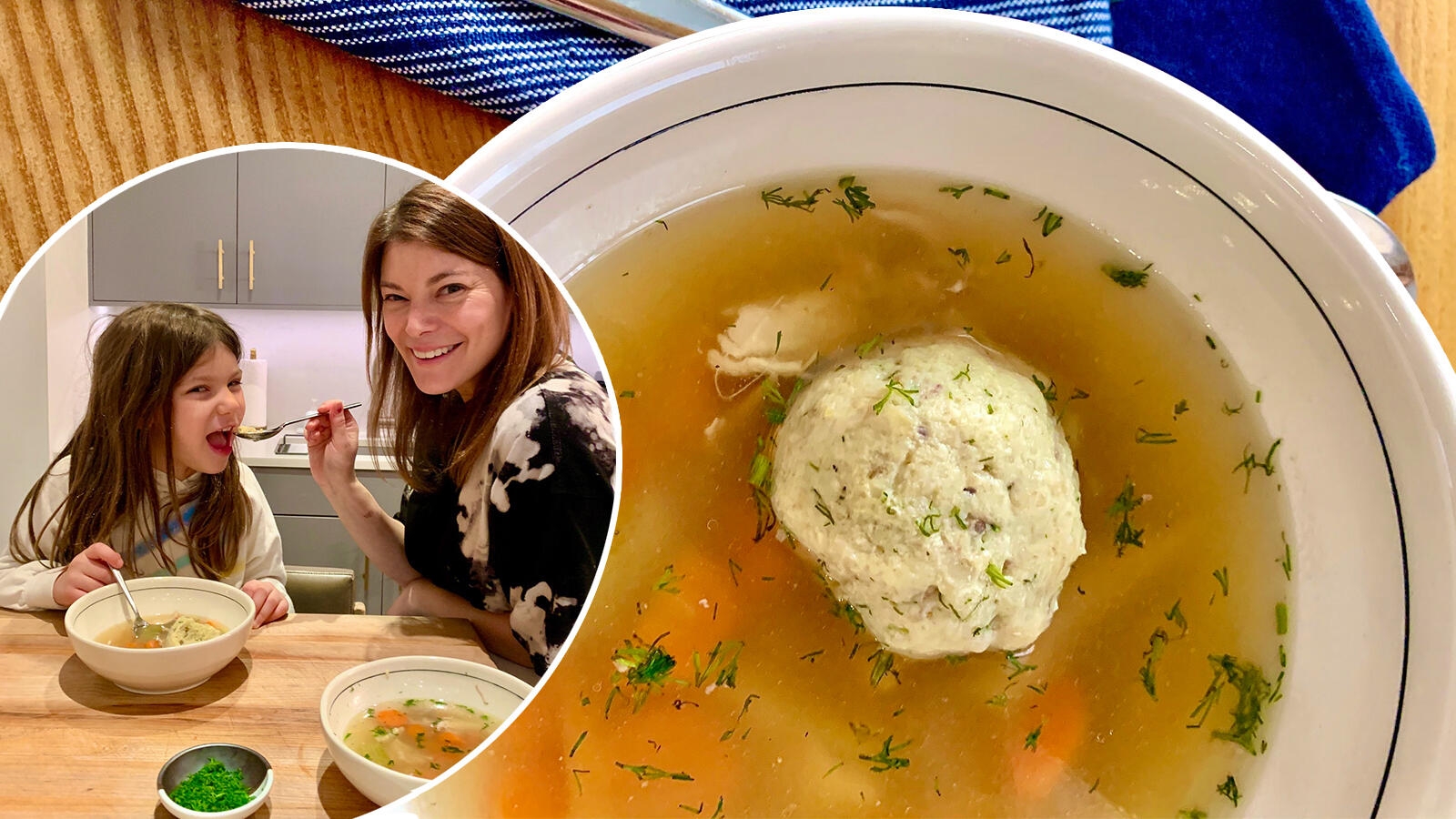Gail Simmons, food writer, culinary expert and one of three judges on the award-winning, long-running Bravo food show, “Top Chef,” grew up in a Conservative Jewish home in Canada, in which food was a focus of her family’s life. Her mom, who Simmons calls “an amazing cook,” made Shabbat dinner every Friday night of Simmons’ childhood, and held what Simmons describes as “epic” Passover seders for 40-50 friends and family members.
This year, Simmons, who lives in Brooklyn, will hold her own seders for her husband, children, in-laws and friends. They will not be as large as the ones her mother made, but she expects to have 15-20 people around the table. It will be traditional – with her family’s own twists.
Getting the children involved is the whole point of the seder, Simmons believes. She keeps masks and finger puppets of the 10 plagues on the seder table, and finds ways to make the seder interactive.
“My father and my father-in-law both run beautiful seders, and they always make sure that every person at the Seder table, including the youngest, has a chance to speak,” Simmons told The Nosher.
Simmons’ family also incorporates a passage from the Reverend Martin Luther King, Jr. about freedom and liberation, adds an orange to their seder plate to “symbolize the strength of women,” and invites non-Jews to their celebration, so as “to reach more people about how beautiful and meaningful this holiday is.”
When I spoke to Simmons, she’d tasked herself with preparing the side dishes, desserts and seder plate this year, complete with a traditional Ashkenazi haroset of wine and chopped nuts, which she sometimes sweetens with a touch of maple syrup.
But she and her mother-in-law had yet to decide which of the two of them would make the brisket, or what the final seder menu would look like. If she does take on the brisket, Simmons will opt for her recipe for “Not Your Mama’s Horseradish Brisket,” which calls for wine and is coated with a mixture of mustard (or oil if your tradition is to not eat mustard seed on Passover), garlic and white horseradish. This savory recipe is a deliberate departure from the sweeter briskets that were popular in her parents’ generation.
And while Simmons loves her chicken soup recipe, which starts with stock (either homemade or store bought) and includes poached shredded chicken, lots of root vegetables like carrot and parsnip for a “beautiful sweetness,” and is often finished with a squeeze of lemon and fresh dill, her mother-in-law is in charge of the soup this year.
“In fact, it is already made and she will drive it down, frozen, from Canada.” said Simmons. “She brings it so there is one less thing I have to do.”
Simmons will serve matzah balls with the soup since her “children are obsessed” with them. Hers are flavored with fresh dill, and she prefers them to be small. If they are too big and not cooked through, they could become gummy and dense, she said. She finds that that is often a problem with the heavy and massive matzah balls she gets in delis in New York.
As a former anthropology major, Simmons sees matzah balls, and food in general, as a portal to study culture, immigration and evolution.
“I think,” she said, “that food can play a role in the understanding of any culture and of the shared experience of us all. Jewish people have had so many obstacles and threats to our culture. Food has always been a way to cross barriers and help people understand us.”
So I wasn’t surprised that when asked which Jewish food Simmons would choose, if given the opportunity, for a challenge on Top Chef, she answered that matzah balls could be interesting.
“Matzah balls are really just a dumpling, or a form of dumpling,” said Simmons. “It exists in almost every culture in the world in some form, and I think it is an interesting study culturally. It would be interesting to see how other people do it.”
Check out Gail Simmons’ chicken soup with matzah balls recipe here.
The post Jewish ‘Top Chef’ Host Gail Simmons Has A Lot to Say About Matzah Balls appeared first on My Jewish Learning.




